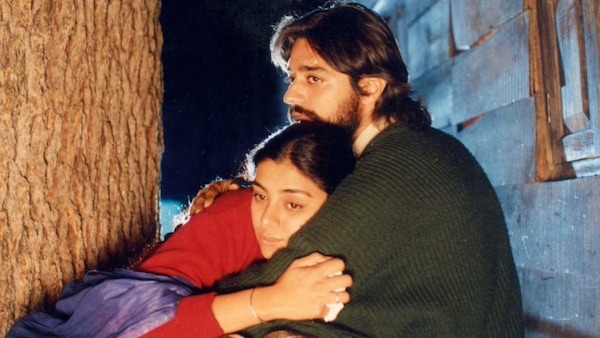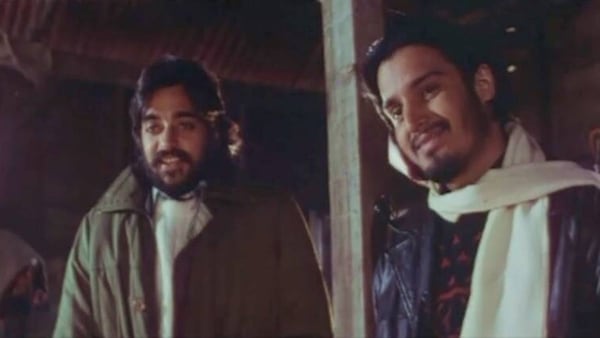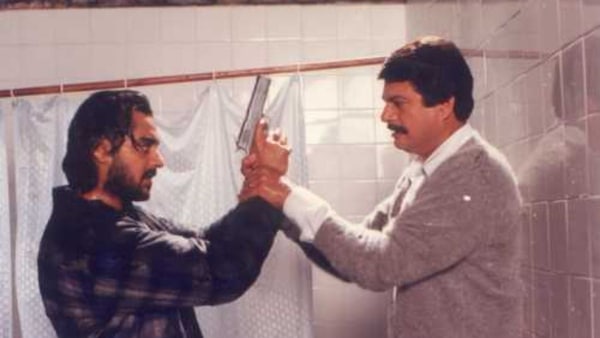As Maachis completes 25 years of release, examining Gulzar’s political drama as a scathing indictment of the system
Maachis, which released in October 1996 and starred Chandrachur Singh, Tabu, and Om Puri, combined pathos and tenderness to narrate the story of Sikh insurgents

Last Updated: 01.19 PM, Oct 27, 2021
In her article on Sardar Udham and patriotism, film critic Anna Vetticad writes, “The more things change, the film seems to remind us without spelling it out in black and white, the more they remain the same.” For the uninitiated, Sardar Udham is a story of the titular figure of the Indian freedom struggle who assassinated Michael O’Dwyer, the former Lieutenant Governor of Punjab. The film laid out in chilling detail the scale of the 1914 Jallianwalla Bagh massacre, without resorting to overdramatisation or sentimentality. Yet, its chilling parallels with the present state of affairs, were difficult to ignore.
Gulzar’s groundbreaking 1996 drama, Maachis, is also set in a specific period of time. Still, the dialogues, penned by the director himself, are ruefully indicative of our current realities. Characters declare in passing that their country does not feel their own anymore or that the system is designed to fail the powerless. Or that it’s been half a century since independence, yet basics like education and job opportunities still evade the economically disadvantaged. Even 25 years after its debut, Maachis remains one of the most unflinching critiques of the establishment.
Released to critical and commercial acclaim, Gulzar’s brave drama narrates the journey of a family against the backdrop of the 1984 anti-Sikh insurgency that erupted across several parts of India in response to Indira Gandhi’s assassination by her Sikh bodyguards. Gulzar contextualises his film with affecting subtlety — three newspaper clippings flash on the screen “Golden Temple Stormed," "Indira Gandhi shot dead," and "Mob burns Sikhs alive". Minutes later, the scene shifts to a small village courtyard throbbing with love and vigour. It’s the house of Jassi (Raj Zutsi) and Veeran (Tabu), who live with their mother. Palli (Chandrachur Singh) is Jassi’s friend and Veeran’s fiance, who comes to visit them on a remarkably ordinary day. But their domestic bliss is cut short when two police officers take Jassi away in connection to suspected terrorist activities. The officers, in the lookout for a man called Jimmy, tortures Jassi in police detention for two weeks for having a dog of the same name.

This indiscriminate brutality against an innocent man is the microcosmic representation of the unchecked violence meted out against Sikhs, which claimed as many as 3000 lives in New Delhi after Gandhi’s assassination. The anti-Sikh pogroms also saw a subsequent rise in violence from Sikh militant groups, frustrated with the Centre’s indifference with respect to mutual negotiations.
Palli, thus, becomes the embodiment of the disillusioned youth resorting to extremism in response to systemic oppression. In a world where law enforcers encounter people to bag juicy promotions and the justice system takes decades to come to any conclusive decision, Palli doesn't have a viable enough option to check the state.
That Gulzar himself is disillusioned by the absurdity of violence is evident from the key incident that sets off a chain of events. Jassi is tortured because his dog incidentally bears the same name as a terrorist who attempted to murder a minister.
Sanatan (Om Puri), a member of the insurgency group Palli joins, squarely declares that his fight is not religio-ethnic superiority, it's a cry for civil rights.
The reason why Palli feels the need to seek out revolutionaries is because the law enforcement does not come to his aid. They blithely dismiss his plea for fundamental rights, instead presenting him with empty promises of the court looking into Jassi’s illegal detention.
Gulzar made no qualms about establishing which side his sympathies lay with. A Punjabi himself, Gulzar’s introspective tale presented a counter-argument for youth unrest and dissent. They are not blood-thirsty terrorists looking to wreak havoc. They are the outcasts who have been robbed of a sense of belonging and rootedness. Gulzar liberally resorts to visual grammar to juxtapose home and homelessness. While the film begins in a sunny courtyard, the rest of the film sees most of the characters fleeing from one safehouse to another, cowering in fear of being identified by the police. Cinematographer Manmohan masterfully captured the austere landscape dotted with streams, guns and bombs. Be it in Punjab or in Himachal, where Palli later travels to, after gunning down the police officer responsible for Jassi’s kidnapping. The empty house metaphor is echoed throughout the film, whether it be Palli returning to the safehouse deserted by his compatriots; or Veeran deciding to follow Palli’s footsteps when her entire family is killed, leaving behind her beloved home.
Each frame brims with pathos. There is a deep sorrow that permeates through every scene of the film. Tabu, dressed in black, listlessly strolling in her empty house in the dark, is a portrait of intense solitude. There is violence too, although never gratuitous.
But for a political thriller, Maachis is curiously restrained and tender. The friendships are heartfelt, the romance is organic. Vishal Bharadwaj’s haunting compositions echo through the rocky terrain, capturing the pathos of a life in exile, lit up only in moments when memories come flooding back. Chhor Aye Hum Woh Galiya is a fond love letter to the little joys of the left behind. Hariharan, Suresh Wadkar, Vinod Raina and KK come together to voice the young rebels being forced to seek recourse in violence. The lyrics foreground the reason behind their rage — they have had to forsake everything they hold dear, including the semblance of a normal life — and they can never turn back
Chappa Chappa is a song of camaraderie. It is about men forging new friendships in trying circumstances. Paani Paani Re, easily the defining tragic song of the 90s, is a heartfelt plea of a woman to fill her eyes with tears. Soft strums of the banjo, temple bells, the sound of trickling water and crackling flames synergise to create an evocative soundscape. Maachis marked the beginning of a partnership between Bhardwaj and Gulzar that would deliver terrific albums, including Omkara, Ishqiya and Haider.

The release of Maachis was also significant for its actors. Tabu, who had until then appeared in commercial films like Vijaypath and Saajan Chale Sasural, established herself as an actor to be reckoned with. The role earned Tabu her first National Award. For Chandrachur Singh too, who made his debut the same year with Tere Mere Sapne, Maachis proved to be a career-defining role.
Maachis was no Dil Se. It did not have Shah Rukh and Manisha Koirala dart towards each other in slow motion as bombs detonate in the background. Maachis relied on its no-frills narrative to encapsulate the plight of those forced to opt for militancy. It is difficult to imagine such a film being cleared for release now, which makes it even more of a compulsory watch now.

